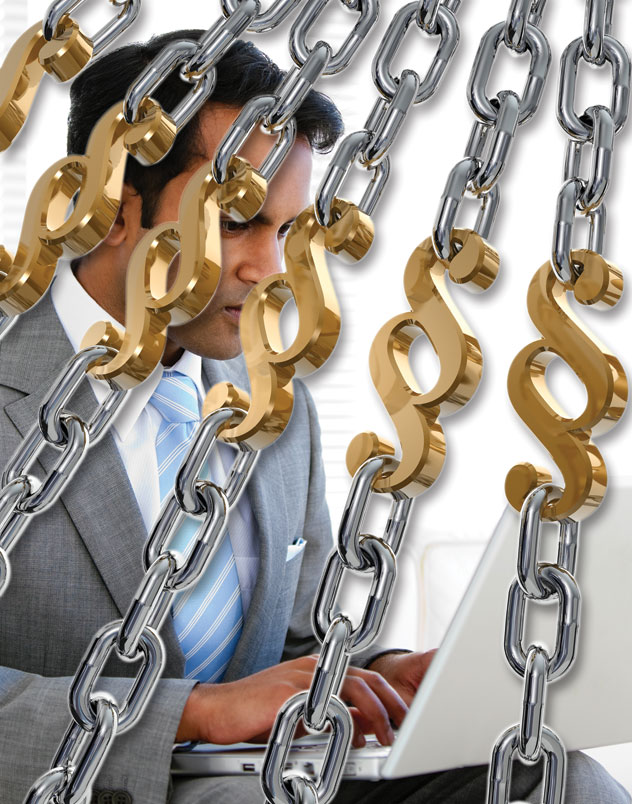COVER STORY
Defying Freedom: Censoring Social Media
While national security and public order cannot be compromised yet a vibrant and free media has to be ensured as it functions as an agent of communication, peace, harmony and unity, and an improved democracy. The government has to come clean in its intentions on regulations and develop a sustained strategy that has grasped technicalities associated with feasibility of censorship and relieves intermediaries of third party-created content, writes Priyanka Bhardwaj.

The announcement that the Indian government would not censor social media came after much deliberation and a whole lot of public opposition.
Even then the Minister of Communications and Information Technology, Kapil Sibal clarified that all social networking sites like Facebook, Google and Twitter will have to abide by rules governing the press and other media.
“I never wanted to censor social media and no government wants to do so. But like the print and electronic media, they have to obey the laws of the country,” said a determined Sibal.
The controversy started in late 2011, when over 19 Internet firms were held accountable by the government for objectionable (anti-social and anti-religious) content posted by Indian citizens on their social network platforms.
Earlier Sibal had directed them to filter blasphemous slurs and images (including unflattering and critical comments against politicians notably the top boss of ruling Congress party Sonia Gandhi) from their sites as these were labeled ‘risky.’
While initially harping on ungovernable nature of social content and digital world the firms soon buckled under government pressure to remove all offensive content which was being used in libel suits against them.
A city judge presiding over the case reportedly told representatives of these firms, “You must have a stringent check. Otherwise, like in China, we may pass orders banning all such websites.”
There may be important developments in later hearings but from what has happened, it is clear that government warnings do have a bearing on shifts in stance of these firms.
The firms opened shop in India with a handful of guiding principles that included ‘do no evil’ and ‘will stick to local law of land.’
Now these principles appear to stand eroded.

A case in point is Google that after an initial period of resistance began directing users away from domain blogspot.com and redirecting them to a censored blogspot.in, the Indian version of blog site even as Yahoo and Facebook refused to consider censoring their material.
This clearly reveals Google’s policy to have become more profit centric than an upholder of freedom of speech, expression, information and empowerment.
With a potential 900 million users, India is among Asia’s largest cash cows for this company.
But not too long ago Google had earned kudos for standing firm against China’s high handedness.
It is not too difficult for the government to twist the arms of Internet firms rather than the news media for the public support and adulation they enjoy.
Yet Indian Internet users came down heavily against Sibal’s maneuvers.
Rather the censorship threats only increased the incidence of jokes and criticisms of politicians in the Indian realm of digital world.
An important fact that cannot be brushed under the carpet is the timing of Sibal’s first salvo against Internet firms.
The country was witnessing the emergence of a mass leader who went on a fast unto death demanding a strong anti-corruption law just when several states were preparing for elections.
Social media served as a significant means to generate momentum and energy for this septuagenarian social activist’s activism.
The entire nation’s imagination was fired up to an unprecedented level due to the new social media revolution, “Indian status message revolution.”

Facebook and Twitter users would persuade friends and other users to visit about 400 places of anti-corruption protests.
People made good use of social web by employing Facebook profile badges, cause applications, missed call campaigns and petitions to power the anti-corruption campaign.
Hashtags #janlokpal and #annahazare began to trend on Twitter and YouTube threw up not less than 2,000 amateur video results on Anna’s campaign.
While there were 180,000 likes on the anti-corruption movement’s Facebook page, its Facebook event showed 160,000 attendees at one point of time last year.
Therefore, the juggernaut movement was bound to shake the edifice of Congress-led United Provincial Alliance government at Center whose ministers and sundry leaders were tainted in high-profile scams, and this also provided enough political ammunition to Bharatiya Janata Dal-led opposition to target the ruling coalition.
The clamp down on Internet firms was not a standalone case where the government flouted its role of protecting enshrined rights of its citizens.
Recently the state was seen pandering to bullying sentiments of self-appointed representatives of a certain community when it ‘advised’ a very celebrated author, Salman Rushdie not to visit the Jaipur Literature Festival for fear of violence by those very groups as they stood offended by his Satanic Verses that he had penned more than two decades ago.
An endless list of state-banned books, documentaries, art works and sculptures can be drawn to show how the freedom to claim offense has substituted the freedom to express in world’s largest democracy.
“And when you allow yourself to be bullied over time, you may become one yourself,” said a social commentator.
A close examination of government policy on Internet censorship reveals that it has been quite selective and rare till 2008. But the Mumbai attacks of 26/11 in 2008 changed matters as the Indian Parliament passed amendments to Information Technology Act to expand government’s censorship and monitoring capabilities.
Private service-providers including Internet Service Providers, search engines, and cyber-cafes were suddenly required to comply by government blocking requests or else face seven years of imprisonment.
Now both bloggers and moderators can face not just libel suits but even criminal prosecution for comments posted by other users on their websites.
While national security and public order cannot be compromised yet a vibrant and free media has to be ensured as it functions as an agent of communication, peace, harmony and unity, and an improved democracy.
In summation, the government has to come clean in its intentions on regulations and develop a sustained strategy that has grasped technicalities associated with feasibility of censorship and relieves intermediaries of third party-created content.
Otherwise inconsistent results are bound to flow from sporadic, regulatory attempts coupled with a plethora of buzz, speculation and criticism.
|